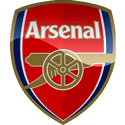Written by Aviran Zazon | Last updated on November 3, 2025
Quick Read
- Find Arsenal tickets from vetted marketplaces, even for sold-out matches at the Emirates and beyond.
- Ticket prices are generated live and include Club Level, away sections, and Champions League games.
- Page covers seating tips, average prices, hospitality lounges, and buying advice for non-members.
Buy Arsenal Tickets
North London Forever indeed. Arsenal have been re-energised the last few years with Mikel Arteta at the helm. The Gunners have shot back into the Champions League, while mounting title challenges that have gripped fans around the world.
That on-pitch improvement has boosted the club’s popularity and made it tough to buy Arsenal football tickets, especially for ordinary fans who can only get to a handful of matches a season.
Arsenal football tickets never go on sale to non-members, while even for Red Members, the success rates on ticketing ballots are painfully low.
Ticket-Compare.com will help you find Arsenal tickets for sale, even for matches that have sold out. You will find the seats you need at the lowest possible prices from only the most reputable secondary markets.
In fact we always have high availability when it comes to match tickets for Arsenal. To illustrate, as of today we have 41,491 tickets for Arsenal across our listings. All sites on our platform provide at least 100% buyer protection.
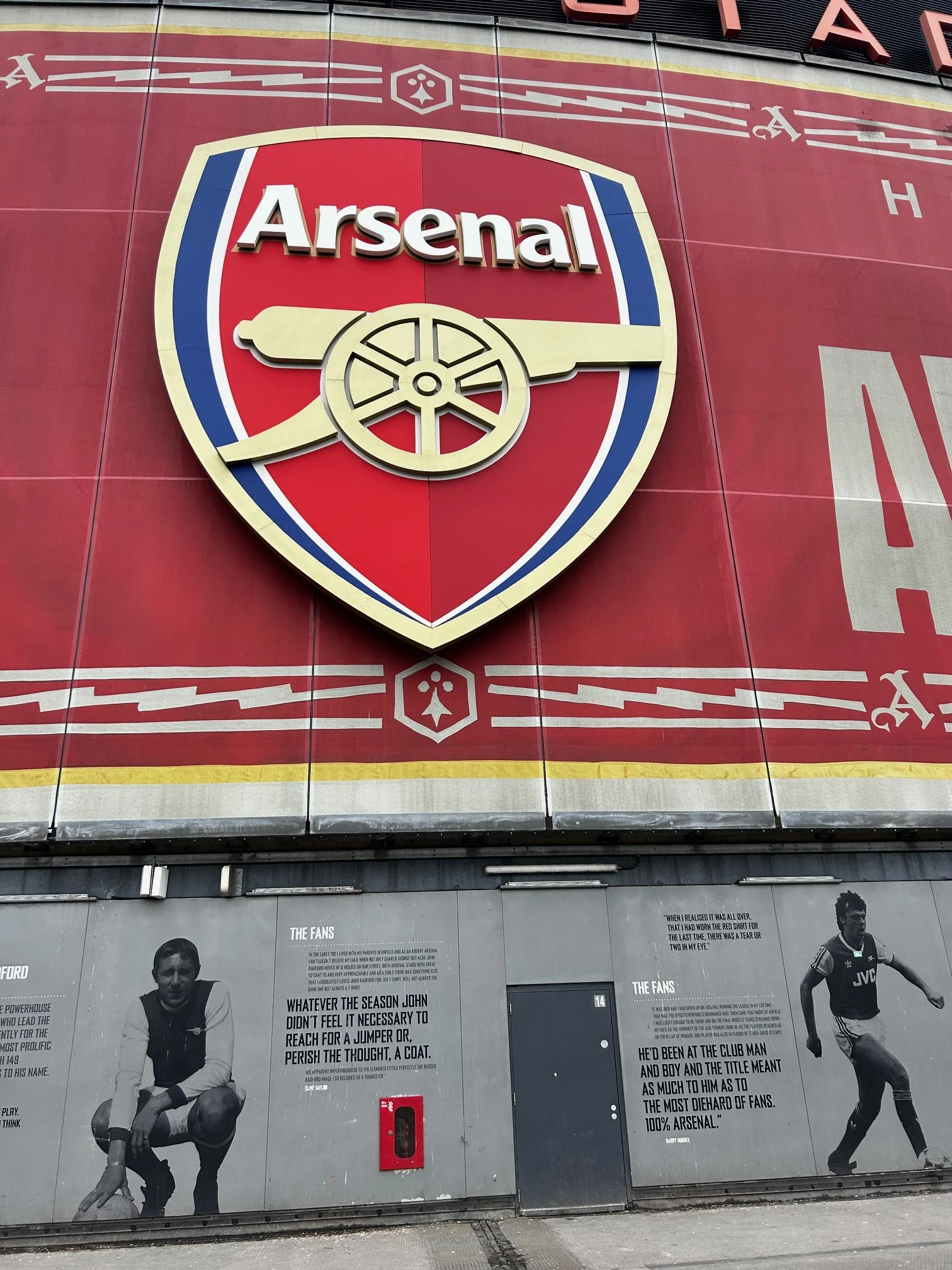
Arsenal Ticket Prices
On our platform, the price of Arsenal football tickets start at $107 for matches at the Emirates and $149 for matches when Arsenal are the visiting team.
In the table below, we’ll show the cheapest prices available for Arsenal FC tickets in upcoming matches. All of our data is refreshed by the minute, so these are the very cheapest Arsenal match tickets as we speak.
Now, as for where to sit at the Emirates. If you want to save money while being surrounded by some of Arsenal’s liveliest fans, head for the shortside stands behind the goals. These are the Clock End and the North Bank, and seating in these ends starts from $113 and rises to $10,242.
| Date | Fixture Tickets | Stadium | Cheapest Ticket | Ticket Availability | Demand |
|---|---|---|---|---|---|
| Jan 31 2026 | Leeds United vs Arsenal | $208 | 314 | ||
| Feb 03 2026 | Arsenal vs Chelsea | $167 | 4502 | ||
| Feb 07 2026 | Arsenal vs Sunderland | $258 | 3746 | ||
| Feb 12 2026 | Brentford vs Arsenal | $177 | 3051 | ||
| Feb 15 2026 | Arsenal vs Wigan Athletic | $107 | 3893 | ||
| Feb 22 2026 | Tottenham Hotspur vs Arsenal | $187 | 3686 | ||
| Mar 01 2026 | Arsenal vs Chelsea | $363 | 4137 | ||
| Mar 04 2026 | Brighton vs Arsenal | $242 | 217 | ||
| Mar 15 2026 | Arsenal vs Everton FC | $317 | 2907 | ||
| Mar 21 2026 | Wolves vs Arsenal | $149 | 1716 | ||
| Apr 11 2026 | Arsenal vs Bournemouth | $339 | 2295 | ||
| Apr 18 2026 | Manchester City vs Arsenal | $255 | 3394 | ||
| Apr 25 2026 | Arsenal vs Newcastle United | $448 | 2713 | ||
| May 02 2026 | Arsenal vs Fulham | $649 | 1070 | ||
| May 09 2026 | West Ham United vs Arsenal | $247 | 470 | ||
| May 17 2026 | Arsenal vs Burnley | $1,279 | 2683 | ||
| May 24 2026 | Crystal Palace vs Arsenal | $490 | 697 |
On the other hand, longside seating in the West Stand and East Stand gives you a clearer view from your seat at Emirates Stadium and a more laid-back atmosphere.
Of course, it’s normal for prices to be a little steeper in this part of the Emirates, but you’ll be rewarded with all-encompassing sightlines. We have Arsenal FC tickets for sale here from $107 rising to $24,289.
Last but not least, if you want a little extra luxury, you can always opt for premium Club Level tickets at the Emirates, which come with superior mid-tier seating and catering. These exclusive Arsenal FC tickets start from $208 and climb as high as $28,337.
For more detailed information on the layout, check out our Emirates Stadium seating plan.
Don’t forget that prices will rise and fall and the best deals may disappear quickly. So don’t hesitate if you spot a deal on tickets for Arsenal through Ticket-Compare.com.
Average Prices of Arsenal Tickets
Here, we will take a look at the average price of Arsenal match tickets on our platform. Ticket-Compare.com features thousands of listings, all refreshed by the minute, so these prices are the latest
We can scan everything, from general admission seats to the most exclusive hospitality experiences:
- 🏟️ Home Premier League Matches: First off, the average price of Arsenal home Premier League tickets at Emirates Stadium is currently $1,698.
- 🎶 Away Days & Fan Atmosphere: Nothing beats an away trip in the Premier League, so if you want to sing your head off with the Gunners’ noisy away support, the average price is $1,298.
- 🔥 Behind the Goal – Noisy Supporters: At the Emirates, if you want a spot behind the goal with the loudest fans, the average price is $1,041.
- 👀 Longside Seats: Meanwhile, for those more coveted seats on the sides of the pitch in the East and West Stand, you should be prepared to pay $1,507 on average.
- 🏆 FA Cup Fixtures: For domestic cup action, the average home ticket price in the FA Cup is $504.
- 🌟 Champions League Nights: For those magical European nights, when Arsenal welcome Europe’s best teams to the Emirates, the average price is as high as $344.
With Ticket-Compare.com you can instantly check prices across all of the top secondary markets, all pre-vetted for reliability and customer service.
These average prices may change at the drop of a hat, so act fast and grab your seat at the Emirates today!
Finding Arsenal Away Tickets
It’s a breeze to find tickets for Arsenal away matches on Ticket-Compare.com. Right now, the most in-demand match featuring Arsenal as the away team is Tottenham Hotspur vs Arsenal at $187, while the cheapest upcoming away match is Wolves vs Arsenal at $149.
Across all of Arsenal upcoming fixtures, the cheapest ticket for Arsenal as the away team is selling for just $294.
The average price for Arsenal football tickets on the road is $1,298, while the highest price in our listings if you want to watch Arsenal away from home is $3,916.
All you have to do is just find the match you want to attend, and tickets for away supporters are usually listed as “Away Only” in the individual ticket listing.
This is all much easier than buying Arsenal tickets for away matches through the club, which is impossible for all but a handful of Arsenal season ticket holders.
Getting Arsenal Champions League Tickets
Arsenal set their sights on Champions League glory every season, and it's just a matter of time before the Gunners get their name on the trophy.
You can join Arsenal in their epic quest for European glory with Champions League tickets from our platform.
With us, coveted Arsenal Champions League tickets start at $206, and go as high as $4,123, with an average price across all listings of as high as $344.
Will the Gunners lift the famous Champions League trophy this year? Be there for every kick with the Ticket-Compare.com!
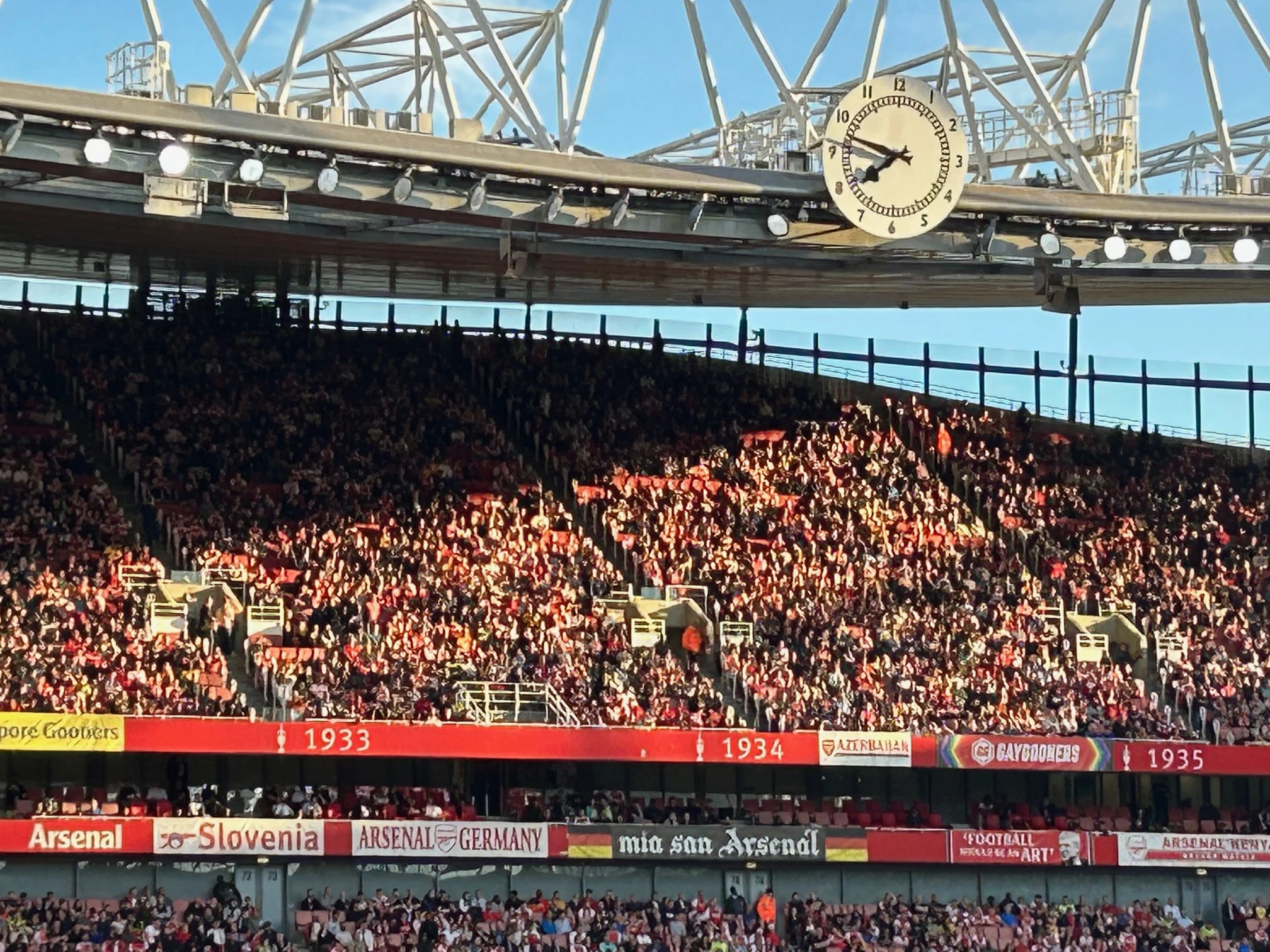
Buying North London Derby Tickets
Tickets for the North London Derby give you a match full of goals, and with an intensity that is unmatched in almost any other local rivalry in the Premier League.
Arsenal vs Tottenham Hotspur tickets are almost impossible to buy from the club. In 2024/25 the ballot success rate for Red Members was just 7%. We’ll talk about this process a little later.
For now, you can buy North London Derby tickets with us from $206, and the price will rise and drop sharply depending on the size of the occasion and the stakes involved.
When these two teams clash, they’re the hottest London football tickets going—and you will always find a spot with us.
Finding Cheap Arsenal Tickets
As of today, the cheapest tickets for Arsenal in any upcoming home fixture is for Arsenal vs Wigan Athletic at $107.
If you’re hunting for cheap Arsenal tickets, we will help you find the lowest available prices on the market. There are a few tried and tested ways to get hold of affordable Arsenal match tickets. One is to pick a midweek match at the Emirates, as these fixtures tend to be harder for fans to attend than weekend games.
You could also try waiting until the day of the match, as there are often deals to be had on last-minute football tickets.
Buy Arsenal Hospitality Tickets
Ticket-Compare.com offers an extensive selection of tickets for Arsenal hospitality for every fixture. Arsenal hospitality tickets will sell out slower than other options on both the primary and secondary markets, so they can be a great way to get to a match when other options are limited.
You will find Arsenal hospitality tickets clearly labelled in our listings with terms like “VIP” and “Hospitality”, as well as the names of the lounges and experiences, like “Cannon Club”.
Today, Ticket-Compare.com has 489 hospitality tickets on sale for Arsenal, with prices from $137.
For a broader view of the market, the average price of hospitality tickets at Emirates Stadium is usually around $550, while if you want to spend big on a special day out at Arsenal, prices rise to $13,742.
Arsenal Hospitality Lounges
Below we’ll list the main Arsenal hospitality experiences currently available at Emirates Stadium. These exclusive packages will give you access to Club Level or Box Level at Emirates Stadium, with upscale dining and a wealth of other perks included:
- Cannon Club (From $206): Club Level seating behind the goal/corner with a pre-match food voucher, a complimentary half-time drink, museum & stadium tour vouchers, and a $7 merchandise discount.
- Royal Arsenal (From $955): Club Level seating with access to the Royal Oak lounge, champagne on arrival, and a pre-match grazing menu.
- Executive Box Plus (From $2,680): Private box for 10-15 guests with direct stadium seating, complimentary drinks, and pre-match dining.
- The Avenell (From $1,780): Luxury padded seats on Box Level, panoramic views, a grazing menu, and appearances by Arsenal legends.
- Academy Package (From $639): Corner/behind goal seats, three complimentary drinks, a main meal, a $7 retail voucher, and a matchday programme.
- Club 1886 (From $886): Corner/behind goal seats, a three-course plated buffet, private lounge access, and complimentary drinks.
- Woolwich Arsenal (From $914): Club Level seating with lounge access, champagne on arrival, and a pre-match grazing menu.
- Inner Circle VIP Hospitality (From $2,604): Midfield Club Level seats, pre-match champagne reception with an Arsenal legend, and private booth dining.
- Heritage VIP Hospitality (From $2,054): Halfway line Club Level seats, a five-course à la carte meal, private table dining, and a signature cocktail.
Getting Face Value Arsenal Tickets
If you are buying tickets directly from the club, the adult price for Arsenal match tickets in 2025/26 ranges from $44, in the upper shortside stands behind the goal, to $200 in the centre of the longside stands on the halfway line.
There are discounts for prices for young adults (aged @19@ to @24@) and seniors (65+). These categories have a single tariff, with prices starting at $33 and rising to $150. Lastly, for fans up to the age of @18@, tickets for Arsenal cost from $22 to $100.
Buying Arsenal tickets directly from the club is notoriously difficult. You have to enter a ballot to be able to buy Arsenal match tickets. This is a lottery with low odds.
In 2024/25 the average success rate in the ballots for fans with Arsenal membership was just 9%. After that, fans who are unsuccessful in the ballot will have a chance to buy a ticket on the Arsenal Ticket Exchange, but availability is unpredictable and low.
With us, you will never have a problem buying Arsenal match tickets, and you can choose from a large range of locations and categories.
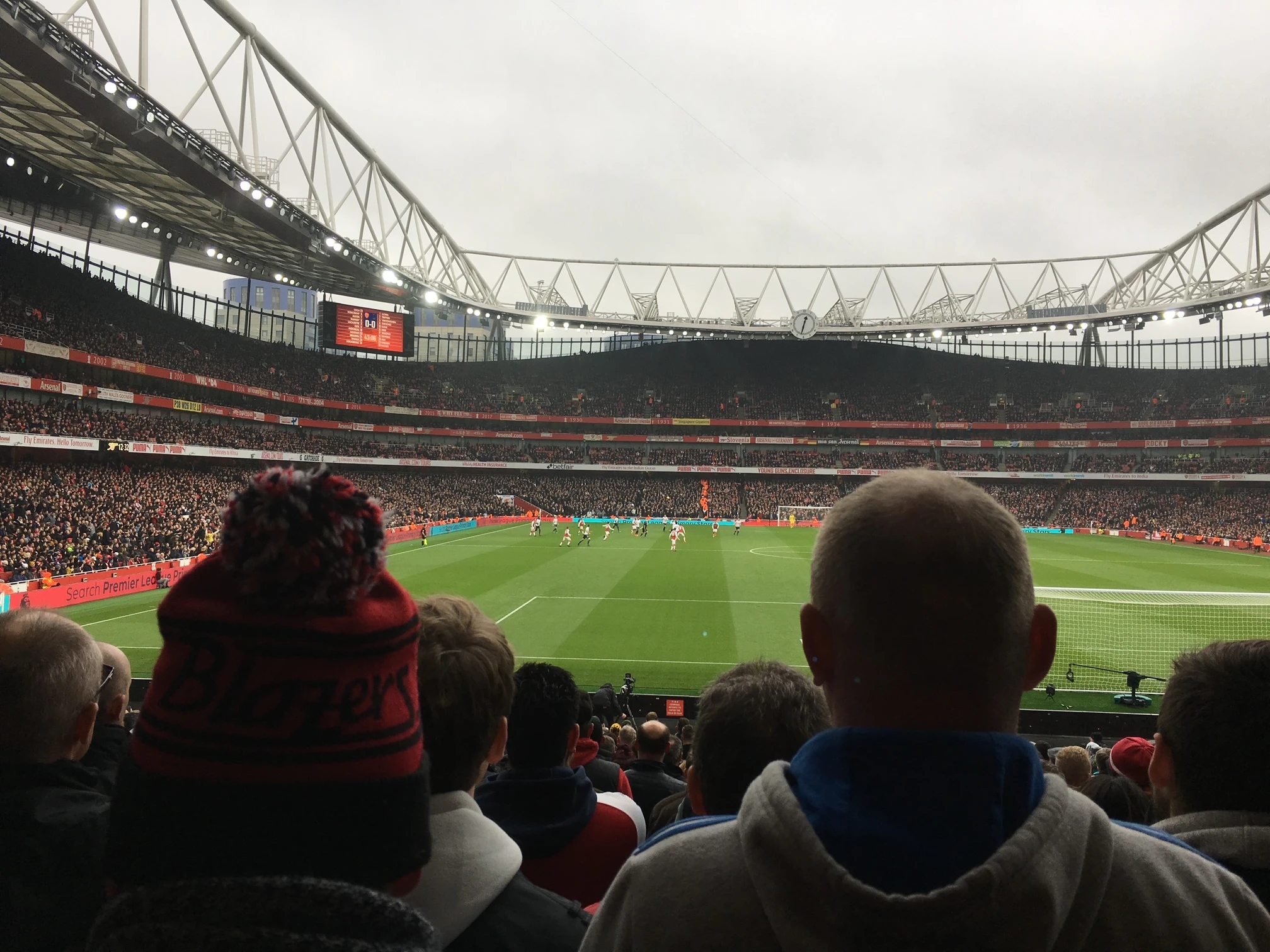
Arsenal Tickets on General Sale
Don’t expect to buy general sale Arsenal tickets through the club. The demand for tickets for Arsenal is simply too high.
- Keep in mind that all of the home allocation is sold in members-only ballots, for Premier League tickets and for tickets in the FA Cup, EFL Cup and the Champions League.
- The process is unlike many other clubs that may sell their match tickets on a first come, first served basis. For other teams, if there is any stock left over after the initial sales phase, a match may go on general sale to the public.
- A general sale will not happen at Arsenal because every ballot is over-subscribed, so as a result there will be no need to sell that allocation of Arsenal FC tickets on general sale to the public.
- The only, extremely rare, exception may be for home mid-week matches in the EFL Cup when there is much less demand.
- These matches take place between September and January, and there will never be more than two or three a season that have a remote possibility of going on general sale.
Instead of hoping for an Arsenal match to go on general sale to the public, just browse our fixture list and snag the Arsenal FC tickets you need, with minimum fuss.
Arsenal Ticket Experience
You should receive your tickets for the Arsenal match by email within two days before kick-off. This short turnaround is typical for ticket resale, but you can always contact the secondary ticketing website for updates.
Most Arsenal tickets sold via our platform are NFC (Near-Field Communication) and can be scanned directly from your phone as a Digital Pass.
Once you receive your ticket you can add it to your Android or Apple wallet, ensuring the QR code is ready to scan at the turnstile.
When you scan your ticket, you will see "Access Granted" in green—you're in! Follow the signs to your block number (1-134), then locate your row and seat. As you step into the stadium bowl, the matchday atmosphere kicks in.
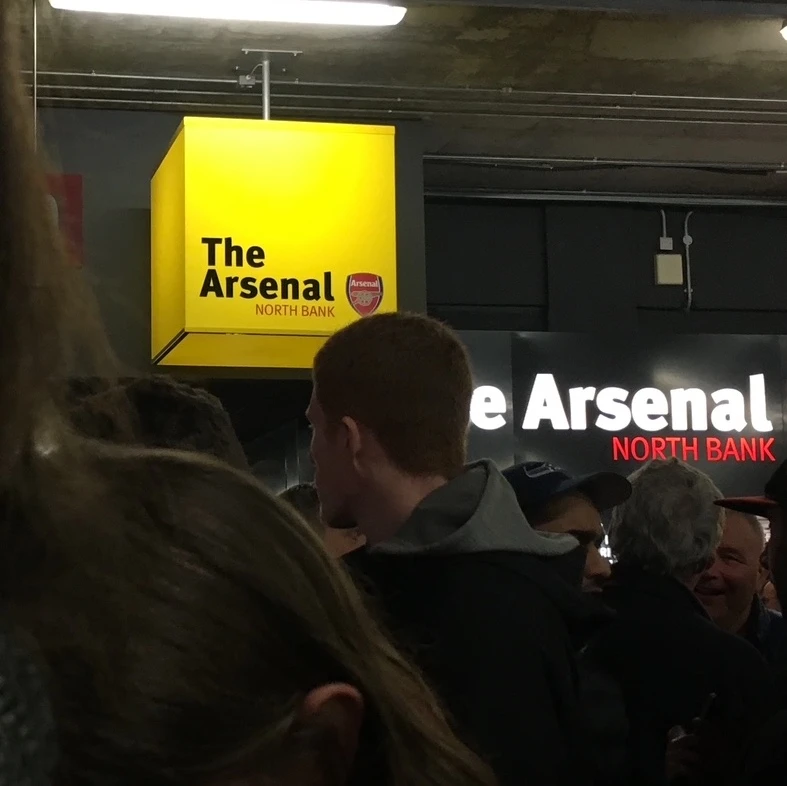
Navigating Emirates Stadium
The Emirates Stadium turnstiles are labelled A to S, running clockwise from the halfway line in the West Stand:
- North Bank entrance (Ken Friar Bridge) → Turnstiles E and F
- Southeast entrance (Danny Fiszman Bridge) → Turnstiles K and L in the East Stand
- West Stand & Clock End entrance (The Armoury) → Turnstiles S, R, and P
Arsenal Matchday Schedule
The club recommends arriving at least 60 minutes before kick-off to take advantage of “Fans First” offers on food & drink in the concourse.
- 45 minutes before kick-off → The players take the pitch for their warm-up.
- Seconds before kick-off → Arsenal’s new anthem, "(The Angel) North London Forever" by Louis Mark Dunford, echoes through the stadium, bringing the Gunners’ faithful together.
The crowd is roaring, anticipation is high—now it’s time for The Arsenal to put on a show!
Frequently Asked Questions about Arsenal Tickets
How to buy Arsenal tickets without a membership?
Arsenal tickets almost never go on general sale, but you can still buy Arsenal tickets without a membership by using Ticket-Compare.com.
We list 100% guaranteed Arsenal resale tickets from trusted sites and official hospitality sellers. This makes it simple to find a match, choose your seating location and book instantly. No Red Membership or Silver Membership will ever be needed here.
You will also be able to buy as many seats as you want on our platform. This isn’t possible for Arsenal Red Members who can only buy one ticket per match, if they are lucky enough to find it.
Why are Arsenal tickets so expensive?
As we show in our article, Arsenal has some of the most expensive ticket prices in the Premier League. There are three main factors behind this.
- The first is the club’s location, relatively central in London, one of the wealthiest cities in Western Europe, and boasting a fanbase with high spending power. In 2024, London’s average annual salary was $65,213, vs $51,436 for the UK as a whole.
- The other factor behind Arsenal’s high prices is the past performance of the club. Arsenal were Champions League regulars for all but six seasons between 1998 and 2025, and have won multiple Premier League and FA Cup titles since the 1990s.
- Arsenal also play in a relatively new stadium. The price of Arsenal tickets jumped suddenly in the early 2000s when Emirates Stadium was under construction, and the prices have only increased with inflation since that time.
Do Arsenal tickets sell out fast?
To sell tickets for matches at Emirates Stadium, Arsenal switched to a ballot system in 2022, so there is no traditional sales period in which tickets can sell out quickly.
Instead, about @6@-@8@ weeks before a match a ballot opens to Red Members, and will remain open for around four days. If the match is in high demand the odds of being successful in the ballot shrink a lot.
What is the best site to buy Arsenal tickets?
Ticket-Compare.com! Why, because we scan multiple markets and official hospitality agents, and only work with sites that we have tested ourselves.
We write detailed reviews of ticketing websites, making test purchases and trying out every website’s customer service to make sure they meet our high standards.
So this means you can buy tickets for Arsenal with total confidence from our platform. Right now, tickets for Arsenal vs Chelsea at $167 are selling fast, so grab your tickets today if you want to get to the big match.
How do Arsenal tickets work?
These days, all Arsenal FC tickets are mobile, and you will receive your tickets for Arsenal in your inbox within a day or two of the match.
If you have any concerns about this timeline, the site you used will have responsive customer service and will answer any queries promptly.
After that you will download the mobile ticket to the wallet on your phone, which will generate a QR code for the scanners at the Emirates Stadium turnstiles.
For the overwhelming majority of buyers, the entire process is seamless, but you can always reach out to the reseller for help.
Where Do Away Fans Sit at Emirates Stadium?
The section for visiting supporters at Arsenal home matches is in the south-east corner of Emirates Stadium, in the Clock End.
The away section is entered through turnstiles K and L, and is made up of Blocks 20, 21, 22 and some of 23 for Premier League matches.
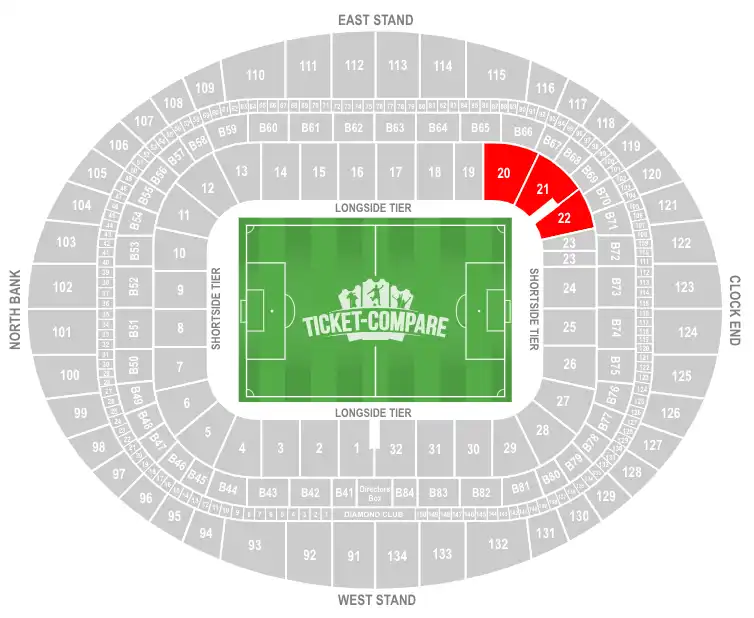
English Football Competitions
Co-founder of Ticket-Compare.com, Aviran Zazon is a web developer, marketer and lifelong sports fan, inspired by the magic of Ronaldinho’s Barcelona.
